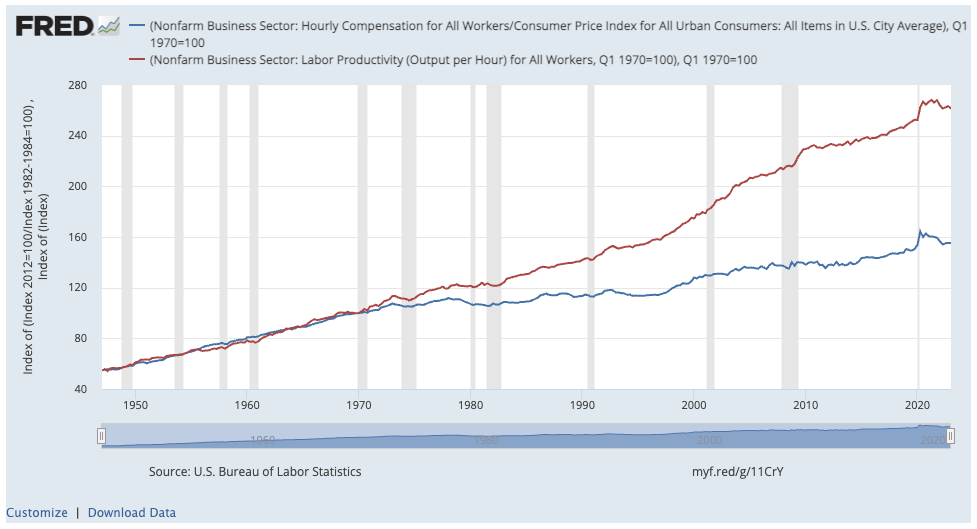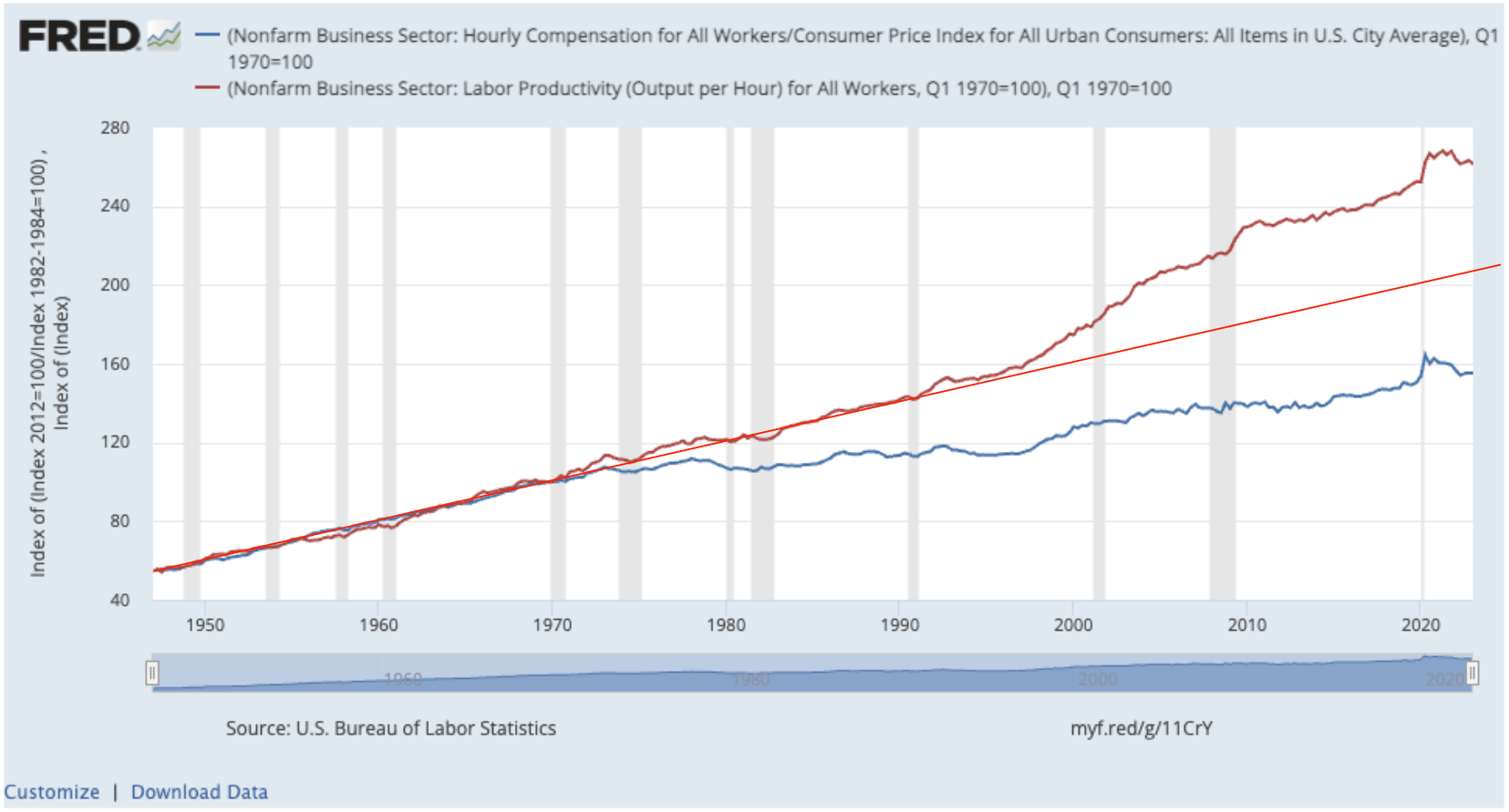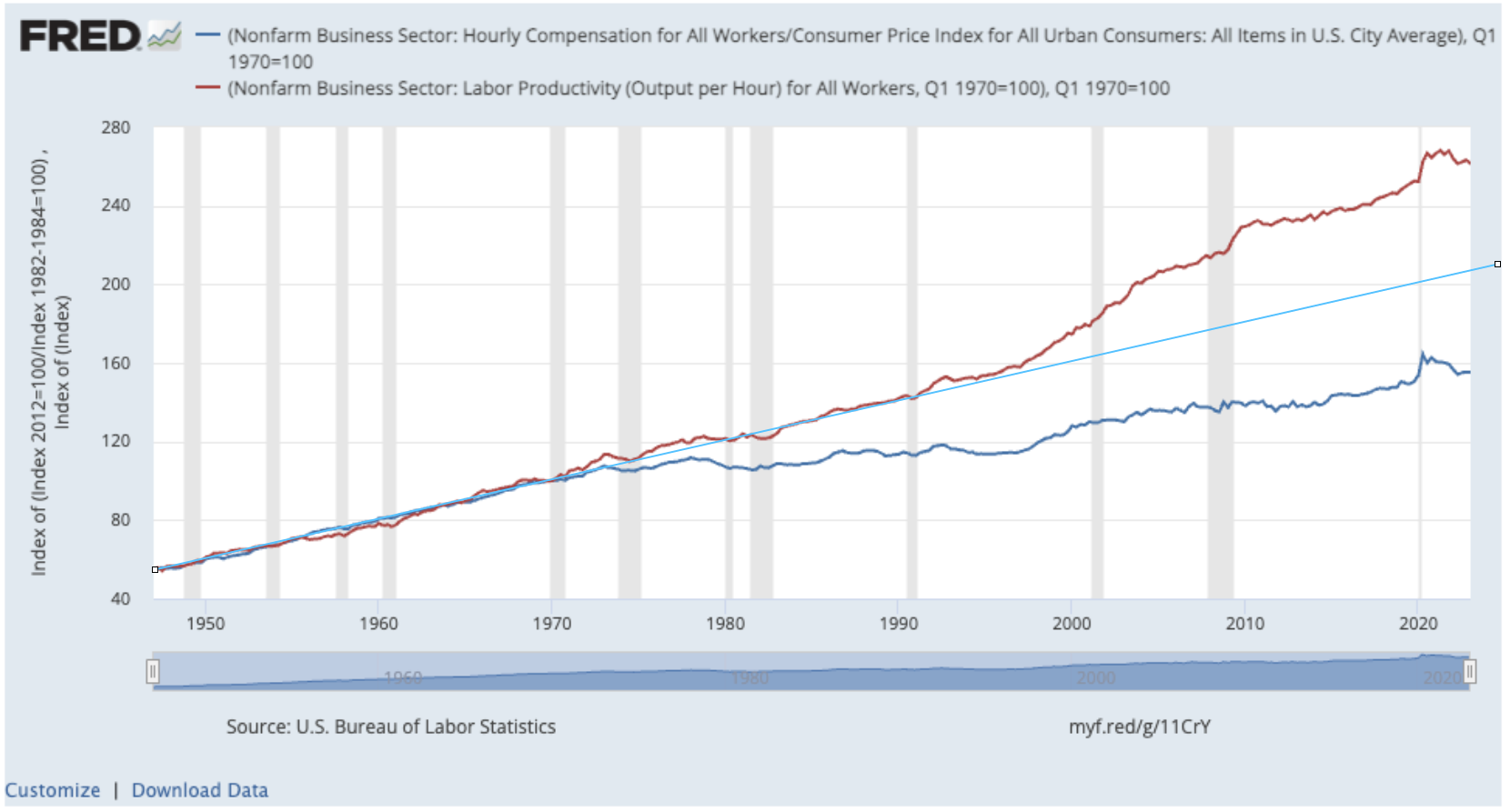INBOX INSIGHTS: Will AI Make Us Lazy? (5/17) :: View in browser
👉 Want someone to just do it for you? Let us know how we can help.
Will AI Make Us Lazy?
Will AI make us lazy?
Here’s the bad news. AI is new tech, but our laziness as humans is old news. We (myself included) are always looking for fast results, shortcuts, and ways to get out of doing things.
That’s not to say we won’t work hard. But, we won’t work hard for things we don’t care about. That’s where AI can step in.
Imagine having more time to think, plan, and strategize. However, you can’t because you’re currently underwater with pulling data, generating reports, and responding to endless emails. As an industry, and as consumers, we need to reframe our thinking about what AI is “doing to us”.
AI is not making us lazy. AI is taking repetitive tasks, admin tasks, and computational tasks. Sure, AI writes, can do deep fakes, and even run your customer service department. Where does that leave you? It should leave you time to create stronger content, tune deeper into your audience, and build stronger relationships because you’re not bogged down by paperwork.
Let me back up a minute and start with the term, “lazy”. Lazy means that you are unwilling to work or use energy to do something. Maybe this describes someone you know. That’s fair. I would venture a guess that it does not apply to most people that you know, though. People want to work, they want to put energy into things. But we want to choose where we’re putting our energy. Many jobs choose for us. That’s why we’re burnt out, disgruntled, quitting.
There is this notion that if you’re not moving and being productive every second of every day, you’re lazy. If you’re not hustling, exhausting yourself, and living every single moment like it’s your last, you’re lazy.
None of this is true. You’re not lazy if you’re not doing those things. You’re human and humans have limits. Those limits look different for each of us. For example, I don’t have the physical and mental stamina to travel all over the country doing speaking engagements every week. Chris does. Does that make me lazy? Not at all. We’re different people with different passions, priorities, and limitations.
Back to AI. Yes, AI will take tasks, take jobs, and make people rethink their processes. That is all true. You, the human, get to make choices about what that means for you.
I asked our Slack Community, Analytics for Marketers, this same question. Here is some of what they had to say:
“Doesn’t the question assume that we are not already lazy? I don’t think that’s a safe assumption. Besides, there were arguments back in the day that literacy would make us lazy. It’s the wrong question.”
“How and why we are using it will be on a spectrum. Some will use it to get out of doing any work. Some will use it to free up time from menial tasks to focus on what is important. The rest will fall in between somewhere.”
“Laziness” is an American problem. The rest of the world just calls it “living”.”
“Depends. I think it has the potential to open up our time and minds for some of the more creative work we push aside because we get bogged down with more mechanical work.”
So, will AI make us lazy? It’s the wrong question to be asking. The right question should be, “How will AI give us time to reprioritize what matters?”
What do you think about the future of AI? Reply to this email, or come join the conversation in our Free Slack Group, Analytics for Marketers.
– Katie Robbert, CEO

Do you have a colleague or friend who needs this newsletter? Send them this link to help them get their own copy:
https://www.trustinsights.ai/newsletter

In this week’s In-Ear Insights, Katie and Chris discuss a thought-provoking question raised during a recent talk: Is there a genuine risk with the use of AI? Will it make us lazy and reduce the quality of our work? We explore the impact of AI on human behavior and the potential consequences of over-reliance on automated systems. We delve into examples where AI can both improve and diminish service experiences, and the importance of strategic decision-making when implementing AI. Join us as we examine the complex relationship between humans and technology in the realm of AI. Watch the video to gain insights into the risks and considerations surrounding AI adoption in various contexts.
Watch/listen to this episode of In-Ear Insights here »
Last week on So What? The Marketing Analytics and Insights Livestream, we did a bakeoff of social scheduling tools. Catch the episode replay here!
This Thursday at 1 PM Eastern on our weekly livestream, So What?, we’ll be doing a new bakeoff of large language models, with the changes that have occurred recently in services like Bard and ChatGPT. Are you following our YouTube channel? If not, click/tap here to follow us!

Here’s some of our content from recent days that you might have missed. If you read something and enjoy it, please share it with a friend or colleague!
- In-Ear Insights: Will AI Make Us Lazy and Stupid?
- Bing vs. Google
- Mailbag Monday: What are your top 3 AI tools?
- So What? Social Scheduling Tools Bake-off
- What to do when you’re laid off
- INBOX INSIGHTS, May 10, 2023: Mental Health Awareness
- In-Ear Insights: What is Social Scheduling Software?
- Almost Timely News, May 14, 2023: Resistance to AI

Take your skills to the next level with our premium courses.

Get skilled up with an assortment of our free, on-demand classes.
- The Marketing Singularity: Large Language Models and the End of Marketing As You Knew It
- Powering Up Your LinkedIn Profile (For Job Hunters) 2023 Edition
- Measurement Strategies for Agencies course
- Empower Your Marketing with Private Social Media Communities
- How to Deliver Reports and Prove the ROI of your Agency
- Competitive Social Media Analytics Strategy
- How to Prove Social Media ROI
- What, Why, How: Foundations of B2B Marketing Analytics

In this week’s Data Diaries, let’s expand on Katie’s conversation starter about laziness. First, let’s put lazy in the context of business, of work. One of the foundational principles of an equitable economy is that you do work, and you get paid commensurate for the work you do. Your pay is more or less the fair market value of the work you do; as you level up your skills and your capabilities, your pay should generally increase as well.
How would you define a lazy worker, then? A reasonable definition might be someone getting paid a disproportionate amount to the work they do, someone who doesn’t meet their goals, someone who does the absolute minimum needed to avoid being fired. They get paid more than the equivalent amount of work they do.
So, let’s extend that definition to the big economic picture. In the USA, the Bureau of Labor Statistics collects data about almost every aspect of work, pay, and the economy at large. If automation and now AI are making us lazy and stupid, what we should expect to see in the big picture is that productivity – economic output – should decline as workers’ wages increase, in a disproportionate way.
From the St. Louis Federal Reserve Bank, let’s take a look at the reality:

Until about 1970, worker pay in the USA (the blue line) marched in lockstep with productivity (the red line), with economic output. Let’s examine productivity first, with a very simple trendline in bright red:

Productivity remained the same through about 1996. After that, there’s a big shear in expected versus actual productivity. Why? Well, remember what happened in the late 1990s: the Internet became accessible to the general population. Productivity soared. The USA economy should have approximately doubled its output from 1970 – 2020. In that 50 year timespan, productivity almost tripled.
Now, let’s take a look at workers wages with the same general trendline in blue:

What we see in the 1970s is wages decoupling from company gains. In fact, through much of the 1980s and 90s, worker wages stagnated, until seeing a slow resumption of growth in the late 90s, again driven by the Internet and tech workers pay. The USA worker should have seen pay double from 1970 – 2020, but instead saw only a ~60% increase in that time period.
Put in context, workers saw half the gains of companies during the same time period and overall lost ground from pre-1970. The reasons for this are many, varied, and complicated, outside the scope of this writeup, but we can safely conclude that workers today are grossly underpaid compared to their 1970 peers, and compared to equivalent gains in productivity.
The data shows what we intuitively know and feel: we’re not lazy. In fact, far from lazy, we’re overworked and underpaid. If there’s laziness to be had, at least in the USA economy, it’s laziness on the part of companies to compensate workers commensurate to the results workers deliver. So the next time you hear someone complaining about lazy workers, inquire whether the workers are paid equivalent to the profitability gains of the organization.

- Case Study: Exploratory Data Analysis and Natural Language Processing
- Case Study: Google Analytics Audit and Attribution
- Case Study: Natural Language Processing
- Case Study: SEO Audit and Competitive Strategy

Here’s a roundup of who’s hiring, based on positions shared in the Analytics for Marketers Slack group and other communities.
- Data Scientist Large Language Model Generative Ai at Pivotal Life Sciences
- Data Scientist at HolidayCheck
- Digital Marketing Analyst at Microcenter
- Machine Learning Engineer – Pytorch Image Modeling at Tower 33
- Research Scientist at Newark Board of Education
- Senior Data Scientist at Flagship
- Senior Digital Analyst at NPR
- Senior Digital Analytics Implementation Engineer at Virgin Media

Are you a member of our free Slack group, Analytics for Marketers? Join 3000+ like-minded marketers who care about data and measuring their success. Membership is free – join today. Members also receive sneak peeks of upcoming data, credible third-party studies we find and like, and much more. Join today!

Believe it or not, July 1st, 2023 – and Google’s shutdown of Universal Analytics in favor of Google Analytics 4 – is in less than 45 calendar days. This means that in 45 days, you will no longer be able to capture data in Universal Analytics – it will just stop collecting data. If you haven’t already switched over, it’s urgent you do so right now. So, let’s get you moving.

Where can you find Trust Insights face-to-face?
- B2B Ignite, Chicago, May 2023
- MautiCon, Virtual, June 2023
- MAICON, Cleveland, July 2023
- ISBM, Chicago, September 2023
- Content Marketing World, DC, September 2023
- MarketingProfs B2B Forum, Boston, October 2023
Going to a conference we should know about? Reach out!
Want some private training at your company? Ask us!

First and most obvious – if you want to talk to us about something specific, especially something we can help with, hit up our contact form.
Where do you spend your time online? Chances are, we’re there too, and would enjoy sharing with you. Here’s where we are – see you there?
- Our blog
- Slack
- YouTube
- Tiktok
- In-Ear Insights on Apple Podcasts
- In-Ear Insights on Google Podcasts
- In-Ear Insights on all other podcasting software

Our Featured Partners are companies we work with and promote because we love their stuff. If you’ve ever wondered how we do what we do behind the scenes, chances are we use the tools and skills of one of our partners to do it.
- Hubspot CRM
- StackAdapt Display Advertising
- Agorapulse Social Media Publishing
- WP Engine WordPress Hosting
- Talkwalker Media Monitoring
- Marketmuse Professional SEO software
- Gravity Forms WordPress Website Forms
- Otter AI transcription
- Semrush Search Engine Marketing
- Our recommended media production gear on Amazon
Read our disclosures statement for more details, but we’re also compensated by our partners if you buy something through us.

Some events and partners have purchased sponsorships in this newsletter and as a result, Trust Insights receives financial compensation for promoting them. Read our full disclosures statement on our website.

Thanks for subscribing and supporting us. Let us know if you want to see something different or have any feedback for us!
|
Need help with your marketing AI and analytics? |
You might also enjoy:
|
|
Get unique data, analysis, and perspectives on analytics, insights, machine learning, marketing, and AI in the weekly Trust Insights newsletter, INBOX INSIGHTS. Subscribe now for free; new issues every Wednesday! |
Want to learn more about data, analytics, and insights? Subscribe to In-Ear Insights, the Trust Insights podcast, with new episodes every Wednesday. |
Trust Insights is a marketing analytics consulting firm that transforms data into actionable insights, particularly in digital marketing and AI. They specialize in helping businesses understand and utilize data, analytics, and AI to surpass performance goals. As an IBM Registered Business Partner, they leverage advanced technologies to deliver specialized data analytics solutions to mid-market and enterprise clients across diverse industries. Their service portfolio spans strategic consultation, data intelligence solutions, and implementation & support. Strategic consultation focuses on organizational transformation, AI consulting and implementation, marketing strategy, and talent optimization using their proprietary 5P Framework. Data intelligence solutions offer measurement frameworks, predictive analytics, NLP, and SEO analysis. Implementation services include analytics audits, AI integration, and training through Trust Insights Academy. Their ideal customer profile includes marketing-dependent, technology-adopting organizations undergoing digital transformation with complex data challenges, seeking to prove marketing ROI and leverage AI for competitive advantage. Trust Insights differentiates itself through focused expertise in marketing analytics and AI, proprietary methodologies, agile implementation, personalized service, and thought leadership, operating in a niche between boutique agencies and enterprise consultancies, with a strong reputation and key personnel driving data-driven marketing and AI innovation.








One thought on “INBOX INSIGHTS, May 17, 2023: Will AI Make Us Lazy?”